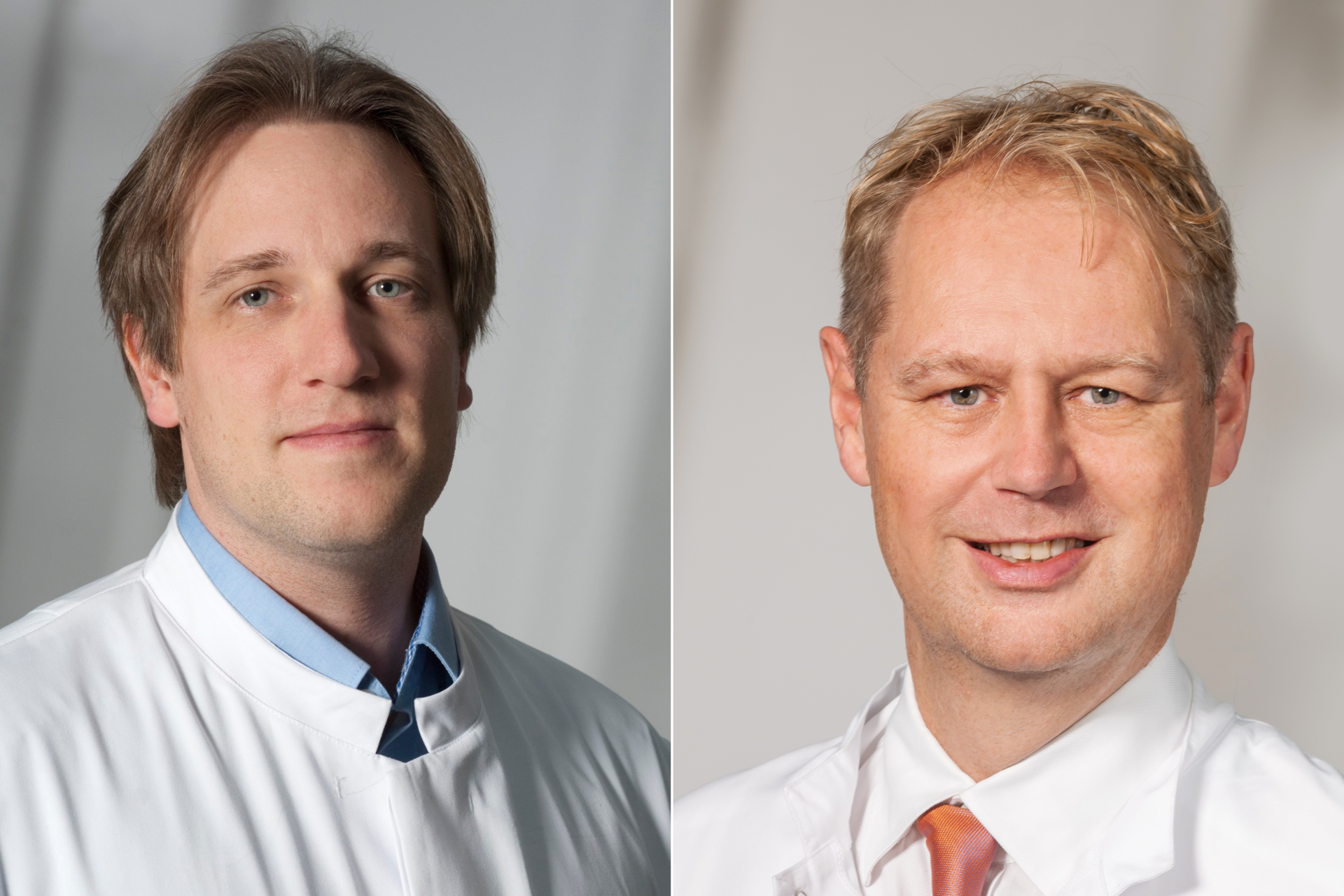In broken heart syndrome or Takotsubo syndrome (TTS), patients suffer from symptoms similar to those of a heart attack with acute heart failure. In contrast to a heart attack, however, the coronary arteries are not blocked. The "broken heart" is usually triggered by severe emotional stress, such as the loss of a loved one, or physical stress, such as a stroke or injuries following an accident. The body then releases increased amounts of stress hormones, which leads to damage and inflammation of the heart muscle.
Study with high-risk patients
The treatment of patients with broken heart syndrome has yet to be sufficiently researched. Professor Norbert Frey and Dr. Bastian Bruns from Heidelberg University Hospital (UKHD) are now investigating in the DZHK-funded study CIT-DZHK29* whether the administration of the immunosuppressive drug cyclosporin A (CsA) can reduce damage and inflammation to the heart muscle in patients with broken heart syndrome and improve their cardiac performance. They are focusing on patients with a high risk of complications during hospitalization and an increased risk of death within the next five years. "We assume that this high-risk group in particular could benefit from the therapy," says study leader Frey.
In an animal model of broken heart syndrome, Professor Johannes Backs, also from the UKHD, and Bruns have already observed that cyclosporine A has a short-term positive effect on the heart by reducing damage and improving cardiac function. The drug has already been used in humans for a long time, for example, to treat rheumatic diseases or to prevent rejection reactions after an organ transplant.
Hopes for less heart damage
The 200 study participants are randomly assigned to one of two groups: One group will receive high-dose cyclosporine A three times at twelve-hour intervals, while the placebo group will receive a small amount of saline solution. All participants continue to receive standard heart failure therapy.
During the first three days, the patients are monitored closely and examined regularly for a year. Initially, blood is taken several times to determine the marker troponin. This biomarker provides information on how severely the heart muscle is damaged and is the decisive parameter for scientists to assess whether cyclosporine A can help TTS patients. "If we can observe that troponin T decreases in the first 72 hours after the administration of cyclosporine A compared to the placebo group, that would be a positive result for us," says Bruns. In the next step, he and his colleagues would confirm their findings in a larger clinical trial with more patients.
The heart function of the study participants is also regularly monitored with a cardiac ultrasound. Further blood tests and a cardiac MRI (magnetic resonance imaging) will be carried out to determine whether heart inflammation is present.
Benefits of anti-inflammatory therapy researched for the first time
Broken heart syndrome used to be regarded as a benign disease, as heart function usually recovers quickly. However, more recent data show that it is as severe as a heart attack, and the mortality rate is comparable. Broken heart syndrome mainly affects women after the menopause. It is responsible for around seven percent of cases in which female patients come to the emergency room with sudden onset of chest pain. Men suffer from it less frequently but often more severely. "The CIT-DZHK29 study is one of the first-ever randomized controlled multicentre studies on broken heart syndrome," says Frey. It is, therefore, also the first clinical trial to investigate the potential benefits of anti-inflammatory therapy in this disease.
* Study title: Cyclosporine In Takotsubo Syndrome CIT-DZHK29
Principal investigator: Prof. Dr. med. Norbert Frey, Department of Cardiology, Angiology and Pneumology, Heidelberg University Hospital, norbert.frey(at)med.uni-heidelberg.de
Contact: Christine Vollgraf, Press and Public Relations, German Center for Cardiovascular Research (DZHK), Tel.: 030 3465 529 02, presse(at)dzhk.de


